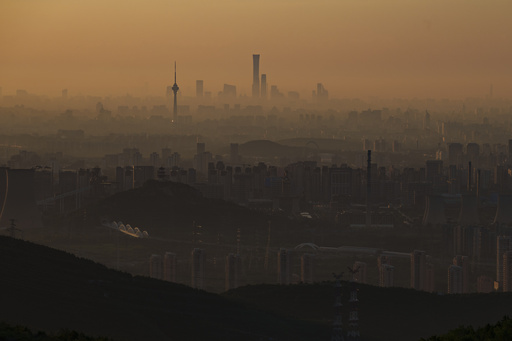China’s Communist Party is concluding a high-level meeting that is anticipated to approve policies centered on enhancing the nation’s technological capabilities and bolstering its national security. The closed-door plenary meeting of the party’s Central Committee is expected to place a significant emphasis on strategies for achieving self-sustaining economic growth, particularly amid increased restrictions on China’s access to cutting-edge Western technology like advanced computer chips and AI.
Observers are keen to see how the party plans to address the decline in China’s real estate sector and low consumer confidence, which have been impeding the country’s recovery from the impact of the COVID-19 pandemic. Economic growth dipped to 4.7% annually in the second quarter of the year due to diminishing investments in real estate and property sales, despite efforts to encourage home purchases.
Recent reports in state media and previous government declarations indicate that Beijing will persist with its focus on investing in technologies and promoting upgrades in equipment and expertise among companies, aligning with President Xi Jinping’s emphasis on “high-quality development.” The party newspaper Global Times mentioned that the meetings will establish a blueprint for comprehensive reform, aiming to enhance governance, address institutional challenges, and foster high-quality development to further modernize China.
Although Chinese leaders have reiterated their commitment to welcoming foreign investment and enhancing the business environment, there have been increasing Communist Party controls over various sectors. Analysts speculate that new incentives for foreign investors and measures to promote “common prosperity” in line with Xi’s vision of inclusive economic growth for all Chinese citizens might be introduced.
Addressing the financial strain on local governments, burdened by significant debt following a crackdown on property developer borrowing, is also a priority. This week’s meetings mark the third plenary session of the 205-member party Central Committee, which commenced its five-year term in 2022. Typically pivotal in setting economic and policy directions, these plenums have historically shaped China’s rise as a global manufacturing and financial hub during the era of “reform and opening up.”
While the possibility of substantial stimulus spending to stimulate economic growth remains low, given China’s mounting economic challenges, analysts note that the urgency for action is heightened. The outcomes of the meeting may not be immediately disclosed, possibly awaiting discussions at the Politburo meeting later this month.
